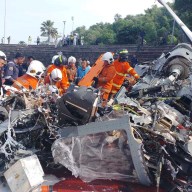Recently, I wrote about the need to control our personal carbon emissions — about how we need to budget the amount of carbon dioxide we cause to be released just as we budget our finances.
Imagine if each of us were told that we could not release more than X amount of carbon dioxide per year. Then, if we took a long car trip, we would have to make up for it by keeping our house colder in the winter or hotter in the summer, or keeping the TV off, or biking to work.
There are many ways to reduce personal carbon dioxide emissions. There are also many websites devoted to giving you this information. I consulted www.carbonfootprint.com, cleanair-coolplanet.org and stopglobalwarming.org.
Suggestions made by these sites range from ones that require an initial expenditure of money such as signing up with a green energy supplier, buying a hybrid car, insulating your house, buying energy efficient appliances, using fluorescent light bulbs and installing a tankless water heater.
Other suggestions involve immediate savings of money such as the simple solution of using less gas or electricity. Obvious ways to do this are to turn off lights you are not using, only run the dishwasher and washing machine when you have a full load, set your thermostat two degrees lower in the winter and higher in the summer, set your water heater two degrees lower and take shorter showers.
Less obvious — at least to me — were some hints I should have realized before, but somehow never did. Devices like VCRs, DVD players and stereos use electricity even when not in use (to power the clock and all the pretty lights!) and the only way to make them stop (the little hogs) is to unplug them. A pain, perhaps, but what’s a little pain when you’re trying to save the planet!
Also, if your cellphone is on the charger, but is fully charged, the charger continues to draw power for some reason. So we need to unplug that, too. Your car will use less gas if it has fully inflated tires and a new air filter.
Other lifestyle-type changes include eating only produce grown locally. It takes a lot of energy to fly a strawberry here from California. Apparently, the little divas insist on flying first-class. Also, recycled products are better than new, and reusable is better than disposable.
Little by little, one light bulb at a time, we can reduce our impact on the Earth. I personally don’t want to die knowing that, because of me, the Earth is a little grubbier and a little warmer, so I’m going to turn off this computer.
Andrew Laursen is an assistant professor in the department of chemistry and biology at Ryerson University and is a member of the environmental applied science and management program in graduate studies. His research is in the area of ecosystem ecology. Sophia Dore is an environmental scientist with Conestoga-Rovers & Associates, an environmental consulting company. Contact Andrew Laursen at earthtones.metro@gmail.com
















